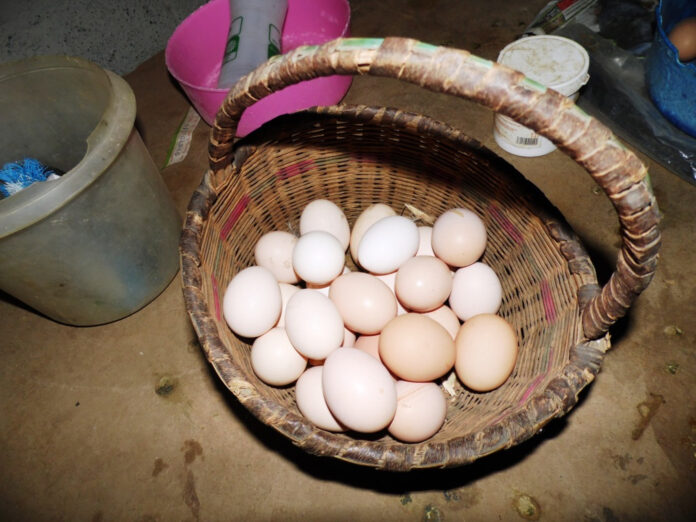Are there healthy farming tricks you can use to make chickens lay more eggs? What do you do when your chickens are constantly laying fewer eggs that have no return on your investment?
Farmers want answers and they want to see actions that will unlock this problem instantly.
Let us look at how you can make chickens lay more eggs and what you need to do to ensure their commercial layer flocks come into production at the right time and looking forward to achieving 300 table eggs per hen/year when you venture into chicken farming.
Please keep it simple, no need to look for complex solutions to simple problems. Let’s go step by step on things to do to ensure your birds are ready to begin egg production at 4-5 months and persistently lay more eggs.
The starting point
A good start to make chickens lay more eggs requires a clean start, ensure the flock units are properly cleaned and sanitised before bringing new flocks. Buy your chicks from a reputable company with proven track record.
Ensure your brooding conditions are adequate for the first seven days, ensure chicks are kept at right temperature of 33-35 degrees Celsius in the first five days when they cannot regulate their own body temperatures.
Cold stress disturbs gut health and lowers resistance making birds susceptible to diseases. E.coli infection is particularly notorious and may lead to protracted condition that will impact negatively at point of lay.
Diet
Choose the right feed for your birds during starter and growing period. How would you know the best feed in the market? Consult widely, talk to successful farmers, cheap feed is not necessarily the best when it comes to chicken farming.
The best feeds for chicken farming must be able to meet the requirements of a bird. It must be easily accessible, available adlibitum, tasty and of the right size and structure. Sample five birds per 100 from the four corners and centre of the flock unit and weigh the birds once per week.
Profits and challenges of greenhouse farming in Kenya
Do it consistently at the same position, same time and same day of the week. Plot these weights against your expected standard.
If you are not achieving your weights correctly you need to consult your poultry centre professionals for corrective action before it is too late. Birds weighing less than 1,400g will struggle to commence egg production.
Overweight birds will produce eggs but with poor persistence. If your chick and duck mash is not giving you the desired weights, boost with broiler starter for 3-4 weeks and watch the weights improve.
Equipment
Always provide adequate feeders and waterers, adopt smart, innovative and natural solutions always. Ensure you have the correct flock density of one bird per square feet, 50 birds per feeder and 80 birds per bell drinker.
These actions will ensure that all your birds are growing at a close uniformity with minimal variations. A more uniform flock is easy to manage.
You can only feed flocks according to their metabolic requirements, if a young flock, at start of production, is not uniform, the requirements of the individual birds vary because they are at a different stages of development and a different stage of production.
Water supply
The golden rule with chicken farming here is; “If you cannot drink the water in the flock unit, then it is not suitable for your birds.’’ Seventy per cent of total mass of the bird is made of water, if you limit water intake by providing dirty and highly alkaline water, you automatically reduce feed intake. Birds take twice as much of the water as feed.
Lighting
With chicken farming, during growing period, provide adequate light intensity and duration in the units at minimum 20 lux and 13 hours respectively.
At 16 weeks of age, increase your day length by 2 hours per week for two weeks only (thereafter come down to 13 hours or natural day length) to stimulate sexual maturity of your birds, please note this light stimulation works best if you grew your birds to standard body weights. We need to start embracing precision farming and leaving less to chance.
Pest & disease control
Vaccinate your birds as per the programme provided to you by your chick supplier. Vaccinate against newcastle, gumboro, fowl typhoid and fowl pox.
Remember these are prescription only medicines and must be properly handled and administered based on the prevailing disease conditions of your area. Also, check for the presence of lice and mites and apply appropriate chemicals with the help of your Vet doctor.








